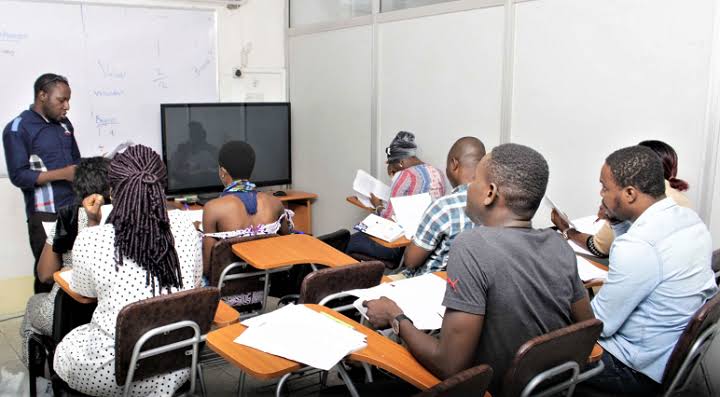Affordable IELTS Prep Tips for Nigerian Students Studying Abroad

For many Nigerian students dreaming of education in Canada, the UK, Australia, or Ireland, one exam stands between aspiration and acceptance, IELTS. The International English Language Testing System is more than just a language exam; it’s an entry requirement into some of the world’s most prestigious universities, and sometimes even a visa prerequisite.
However, beyond the pressure of scoring high is the reality of limited finances. With the cost of sitting for the exam rising steadily in Nigeria, many students cannot afford expensive coaching centres, let alone afford to fail and retake the test. That’s why effective, budget-conscious preparation is crucial. The good news? It’s entirely possible and this guide will show you how.
Understand the IELTS Structure Before You Start
Before diving into preparation, understanding what you’re preparing for is key. IELTS consists of four major components: Listening, Reading, Writing, and Speaking. Each is designed to test your English proficiency in real-world academic and social settings.
The Listening section runs for 30 minutes and requires careful attention to conversations and lectures. The Reading section, often academic-based, lasts for 60 minutes, testing how well you understand detailed texts. Writing spans another hour, typically asking for a data interpretation and an essay. Lastly, the Speaking test is a real-time interview where fluency, coherence, and vocabulary matter more than a British or American accent.
Knowing these expectations helps you structure your prep and target your weaknesses.
Tip 1: Maximize Free Online Resources Instead of Paid Classes
You don’t need to pay ₦50,000 to ₦100,000 for a prep class when you can access high-quality materials for free. Start with the official IELTS website, which offers free full-length sample questions that mirror the actual exam. Platforms like IELTS Liz, IELTS Simon, and IELTS Advantage have built reputations for offering expert-level training and model answers; completely free.
For those who prefer video-based learning, Magoosh IELTS YouTube channel breaks down complex topics like academic writing or listening distractions into digestible lessons. These resources are created by IELTS educators and are just as effective; if not more focused than many overpriced offline classes in Nigeria.
Tip 2: Join Online Study Groups for Motivation and Practice
In a country like Nigeria, where communal learning often works best, finding a WhatsApp or Telegram study group can make all the difference. These groups are not only active with daily challenges, mock tests, and resource sharing, but they also connect you with speaking partners, essay reviewers, and time-management challenges.
Facebook communities like IELTS Nigeria Prep or IELTS for Nigerians Abroad are great entry points. You’ll find hundreds of people preparing just like you; some experienced, some beginners; all sharing knowledge, encouragement, and even updated formats of the test.
The community learning model keeps you accountable and inspired.
Tip 3: Focus on Smart, Not Excessive Reading
One common mistake students make is spending hours reading random English novels or blog posts. While this builds fluency, it doesn’t always prepare you for the academic reading style of IELTS. Instead, read past exam reading passages available in Cambridge IELTS books (free PDF versions are online) or through platforms like IELTS Mentor.
You can also sharpen your comprehension by reading editorials from The Guardian UK, BBC, or Al Jazeera. Focus on how arguments are made, how transitions are handled, and how facts are presented. These skills will prepare you to skim, scan, and infer quickly; all essential to ace the reading section.
Tip 4: Master the Art of Writing by Analyzing, Not Just Writing
Many IELTS students believe writing 20 essays will help them improve, but in reality, analyzing how high scorers write is far more effective. Read Band 8 or 9 sample essays and pay attention to how ideas are introduced, developed, and concluded. Break down their structure and practice rewriting them in your own voice.
After this, attempt your own essays, and use Grammarly (even the free version) to assess your vocabulary, grammar, and tone. Make sure you practice both Task 1 (data analysis) and Task 2 (argumentative essay) formats. Consider timing yourself as well; IELTS writing isn’t just about skill, it’s about speed and coherence.
Tip 5: Practice Speaking Without Needing a Tutor
The speaking test is often the most feared by Nigerian students, but the truth is, you can simulate the experience at home. Use speaking prompts from IELTS Liz or IELTS Speaking Success and record yourself on your phone. Listen for fluency, awkward pauses, filler words (“uhh”, “like”, “you know”) and try again.
Better yet, pair with a friend preparing for the exam and take turns asking each other random topics. You don’t need a foreign tutor; you just need consistent, deliberate speaking practice. With time, your confidence and coherence will improve drastically.
Tip 6: Create a Realistic Study Plan (And Stick to It)
One of the reasons many Nigerian students feel overwhelmed is that they try to cram too much into too little time. But IELTS isn’t a cram-and-pass exam; it rewards measured understanding. A simple 3–4 week study plan works best if you’re disciplined.
For example:
• Week 1: Focus on Listening + Basic Grammar
• Week 2: Reading + Writing Task 1
• Week 3: Writing Task 2 + Speaking
• Week 4: Full-length timed mock exams and review
Even 2 hours daily is enough; consistency beats last-minute marathons.
Don’t Register for the Exam Until You’re Ready
This may be the most overlooked advice but many students rush to book their test out of excitement or pressure. Don’t do that. Only register when:
• You’ve consistently scored your desired band in mock tests
• You’ve completed at least two timed full-length IELTS practice tests
• Your essay structure and speaking tone are clean and polished
Registering before you’re ready only increases your risk of retaking the exam and wasting valuable money.
You Can Win Without Breaking the Bank
In a country where many dreams are stifled by cost, it’s refreshing to know that success in IELTS does not have to depend on money. With the right resources, a disciplined schedule, and smart strategy, any Nigerian student can prepare for and pass the IELTS; affordably and confidently.
You don’t need a British accent, expensive coaching, or a private tutor. You need intention, consistency, and direction. That’s more than enough to take you across borders and into that global classroom you’ve always imagined.




